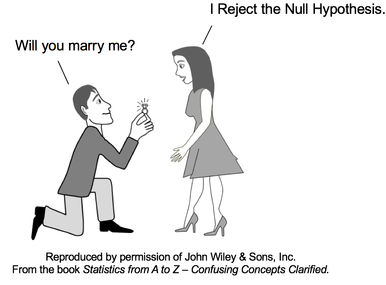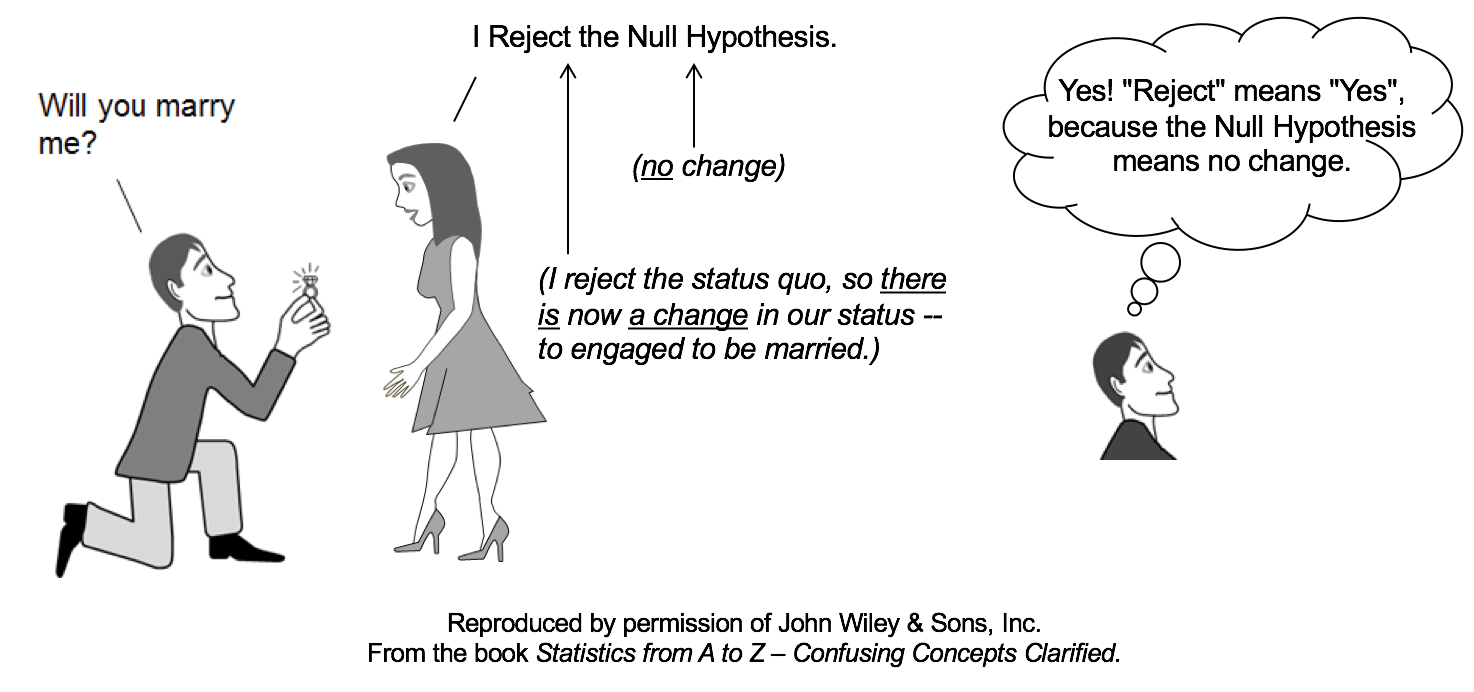|
"Reject the Null Hypothesis" is one of two possible outcomes of a Hypothesis Test. The other is "Fail to Reject the Null Hypothesis". Both of these statements can be confusing to many people. Let's try to clarify the concept of "Reject the Null Hypothesis". The Null Hypothesis states that there is no (Statistically Significant)
For example,
If the results of a statistical test indicate "Reject the Null Hypothesis", that means that we conclude that there is a (Statistically Significant)
What is the Null Hypothesis to which she is referring? As we said earlier, the Null Hypothesis says there is no difference, change, or effect. Before his proposal, they were not engaged to be married. So, if there is to be no difference, change, or effect in their relationship as a result of his proposal and her response, the Null Hypothesis would say that they are not to be engaged. But she rejects the Null Hypothesis. This indicates that she does want there to be a difference, change, or effect. She does want to change their status to engaged to be married.
If you still find this a little confusing, you might want to go to my YouTube channel and see the video on this subject: Reject the Null Hypothesis. There are also videos on these related concepts:
For more on available and planned videos based on content from my book, see the Videos page on this website.
3 Comments
Great job explaining the concept of "Reject the Null Hypothesis" in a clear and relatable way using the marriage proposal scenario. The addition of your YouTube channel and related videos is a helpful resource for those looking to further understand hypothesis testing.
Reply
rahul
4/18/2023 06:09:42 am
it could mean that she wants to break up also.
Reply
Leave a Reply. |
AuthorAndrew A. (Andy) Jawlik is the author of the book, Statistics from A to Z -- Confusing Concepts Clarified, published by Wiley. Archives
March 2021
Categories |



 RSS Feed
RSS Feed